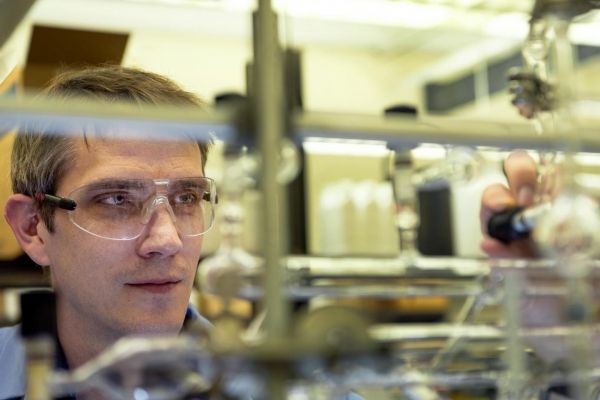A new chemical compound created by researchers at West Virginia University is lighting the way for renewable energy.
The compound is a photosensitizer, meaning it promotes chemical reactions in the presence of light. It has many potential applications for improving the efficiency of modern technologies ranging from electricity-producing solar panels to cell phones.
The study, published March 16 in Nature Chemistry , was conducted by researchers in Assistant Professor of Chemistry Carsten Milsmann’s lab with support from his National Science Foundation CAREER Award.
These technologies currently rely on precious metals, like iridium and ruthenium, to function. However, only limited supplies of these materials remain in the world, making them nonrenewable, difficult to access and expensive.
Read more at West Virginia University
Image: A new chemical compound created by researchers at West Virginia University is lighting the way for renewable energy. (Credit: West Virginia University)


